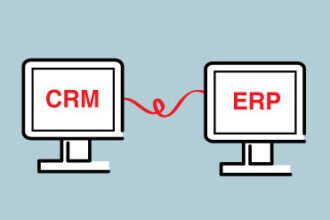The September 10 edition of Processor Magazine provides insight with regard to building private clouds as well as a comparison of private and public clouds. In this article we relate the positions presented to the ERP software space.
The September 10 edition of Processor Magazine provides insight with regard to building private clouds as well as a comparison of private and public clouds. In this article we relate the positions presented to the ERP software space.
Public versus Private Clouds – Key Points
Processor Magazine article The Public vs. Private Cloud Debate Christian Perry makes several key points:
- Public clouds can offer secure, inexpensive environments that cover a wide range of services for enterprises that are flexible with their needs.
- Public clouds can offer secure, inexpensive environments that cover a wide range of services for enterprises that are flexible with their needs.
- Because business and application needs often vary within an organization, a hybrid public/private strategy can be the best solution.
With many virtual machine options as well as a new Windows Azure appliance from Microsoft, there are several options for making private clouds a reality.
ERP software as a special cloud case
Building an ERP software environment requires different priorities than many other applications that currently use cloud infrastructures. Email, file storage, and other basic commodity services are well suited to public clouds because the cost of infrastructure is high relative to the cost of the software (learn more about relative costs in our single vs multi-tenant article). For ERP software customization of the application, integration with other systems, and control of data are critical to the deployment, so a private cloud may be beneficial and cost effective.
| Needs & Benefits | Advantage To | Commentary |
| Low start up costs | Public | Private clouds can be expensive to setup and run. Do not underestimate the cost of building a cloud solution, complete with fault tolerance, backups, connectivity, power, operating systems, and more. |
| Low ongoing costs | Private, maybe … | Economies of scale make it less expensive for cloud providers to implement a cloud, but they do need to make money. Cloud prices may fall to the point where provider efficiency may offset the profit margin that they charge. For businesses without an existing datacenter, the cost will almost always be lower using a public cloud. |
| Interfacing with other systems | Private | Connecting to other systems on your intranet is much easier with a private cloud. When connecting to a public cloud, we aware of bandwidth charges that might be incurred if you build interfaces between your on-premise applications. |
| Rapid scalability | Public | Public clouds can scale up and down quickly. By averaging usage patterns across multiple users, this scaling can be accomplished much less expensively. Applications requiring bursts of resources will require businesses to overbuild an internal cloud. |
| Control data location | Private | In Europe privacy laws require businesses to keep data inside national boundaries, but most public clouds will maintain your data inside the country that you specify. In the USA specific vertical markets have legislation that requires tight control over customer data. Everywhere, some executives like to know that their data is under company control. |
| Security | Private, but… | The security debate can be argued both ways. Public clouds live in state-of-the-art datacenters that may provide better security than a private cloud. So although the perception is that these may be less secure, in fact, the opposite may be true. Transmission over the Internet can be accomplished as securely as remote access to a local area network. |
| Control of environment | Depends | The control over operating environment varies by cloud provider. Some public clouds such as Windows Azure automatically upgrade your operating system while others such as Amazon allow you to deploy a standard image. Neither public cloud model allows you to control the type of hardware, but most applications (except the virtualization software to create your cloud) do not have specific hardware requirements. |
Summary
The public versus private cloud debate differs from application to application. In the special case of deploying ERP software on a cloud, the needs of each individual company might be different. Small companies and organizations with simple accounting practices can benefit from a public cloud while complex organizations with IT departments may be better suited by a private cloud.
Most importantly, the needs of a company may change over time. This means that making a choice to deploy on a public cloud might be right today while a private cloud might be a better choice for the future. When evaluating your deployment consider whether such a switch will be necessary and determine the cost of making that switch. With some vendors the cost is almost negligible while with others the cost (including data migration services, testing, etc.) is not possible or is as expensive as switching your entire ERP solution.
See also: previous ERP Cloud News article on public versus private clouds






